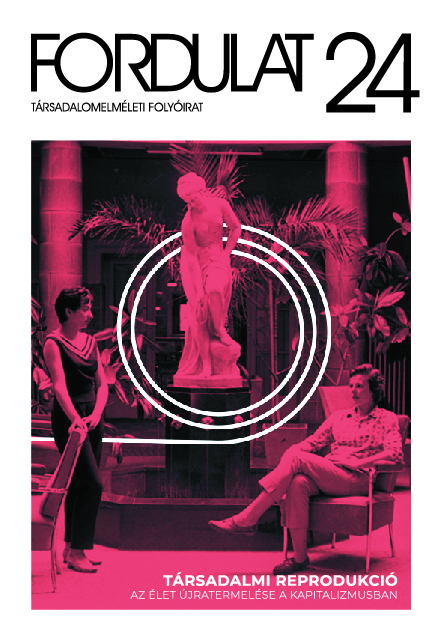Az LMBT+ identitások és mozgalom politikai gazdaságtana a félperiférián
The Political Economy of LGBT+ Identities and Activism in the Semi-Periphery
Author(s): György MészárosSubject(s): Politics / Political Sciences, Social Sciences, Gender Studies, Political Theory, Civil Society, Sociology, Political economy, Politics and society, Family and social welfare, Sociology of Culture, Social Norms / Social Control, Sociology of Politics, Globalization
Published by: Fordulat
Keywords: LGBT;LGBT activism;world-system analysis;globalisation;identity politics;semi-periphery;
Summary/Abstract: This article aims to form a critique of the identity-based approach of the mainstream LGBT+ activism to place LGBT+ identities and activism to another, political-economical and anti-systemic frame and to analyse the EU’s mainstream approach together with its Hungarian counterpart. To complete this task the essay analyses some relevant texts and offers autoethnographic reflections. As the analysis of the international documents (such as the Yogyakarta Principles) and of the websites of the largest European LGBT + organizations (ILGA Europe, IGLYO) reveals, the mainstream LGBT+ activism applies a human rights frame and an identity politics- based liberal approach. This frame is followed by the Hungarian LGBT+ activism that often combines it with a discourse that contrasts the progressive “Western” liberal world with the backward “Eastern” world. This ideology focuses on the self-definition of the subject and builds rights and political activities on it, and understands the notion of gender in the dimension of identity. By this approach subjects are bounded to the structures of neoliberal capitalism, and LGBT+ identities are commodified. In the semi-periphery, this is topped by a self-colonizing tendency that presents the “Western” world as a superior one. At the same time anti-systemic authors have shown how gay (LGBT+) identity is embedded into the system of capitalist production and reproduction. LGBT+ identities are the products of capitalism, and its power relations are both reproducing the heteronormative model (especially in the semi-periphery) and incorporating the progressive, free, neoliberal “gay” subjects. Consequently this study argues that material relations should be considered in building the resistance to heteronormativity and capitalism.
Journal: Fordulat (2008-tól Új Folyam)
- Issue Year: 2018
- Issue No: 24
- Page Range: 215-241
- Page Count: 27
- Language: Hungarian

